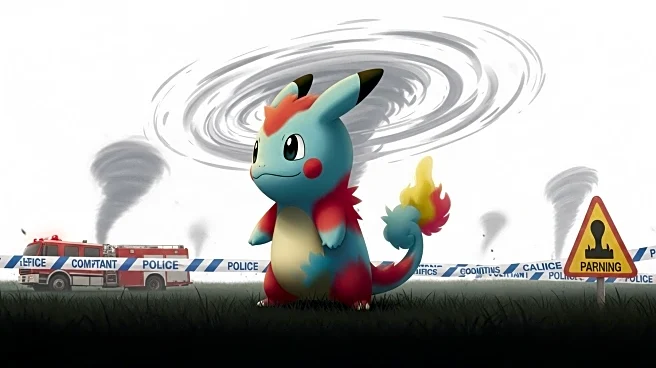What's Happening?
The Department of Homeland Security (DHS) has faced criticism from Pokémon Company International for using the Pokémon theme song 'Gotta Catch 'Em All' in a video promoting ICE deportations. The video, shared on social media by the Trump administration, featured live arrest footage alongside the theme song, which was used without permission. The Pokémon Company issued a statement denouncing the unauthorized use of their intellectual property. Despite the backlash, DHS has not removed the video, which includes mock Pokémon cards depicting criminal illegal aliens and their alleged crimes.
Why It's Important?
The incident highlights the ongoing tensions between government agencies and private companies over the use of intellectual property. It raises questions about the ethical implications of using popular cultural references in serious contexts like deportation. The backlash from Pokémon Company International underscores the importance of respecting intellectual property rights and the potential reputational risks for government agencies when they fail to do so. This situation also reflects broader societal debates about immigration policies and the portrayal of such policies in media.
What's Next?
The controversy may lead to increased scrutiny of how government agencies use cultural references in their communications. It could prompt discussions about the need for clearer guidelines and permissions when using intellectual property in official content. Stakeholders, including legal experts and cultural commentators, may weigh in on the implications of this incident, potentially influencing future government communication strategies.
Beyond the Headlines
The use of a children's theme song in a deportation video raises cultural and ethical questions about the intersection of entertainment and serious policy issues. It highlights the potential for cultural symbols to be co-opted in ways that may not align with their original intent, sparking debates about the appropriateness and impact of such actions.











